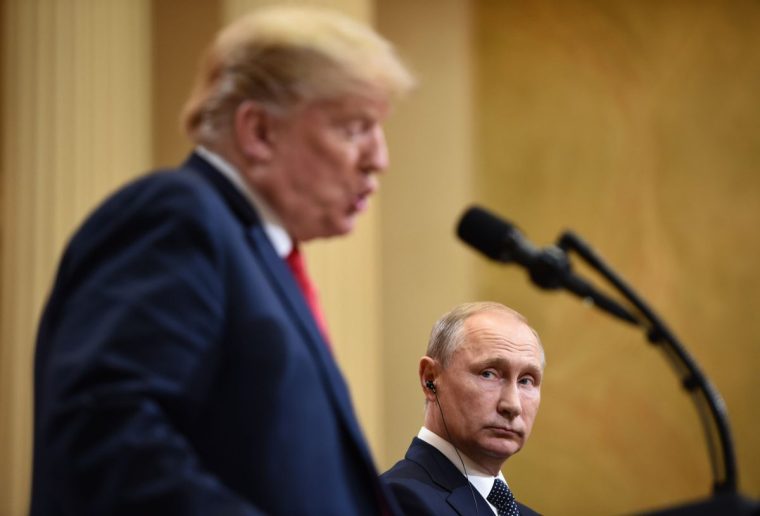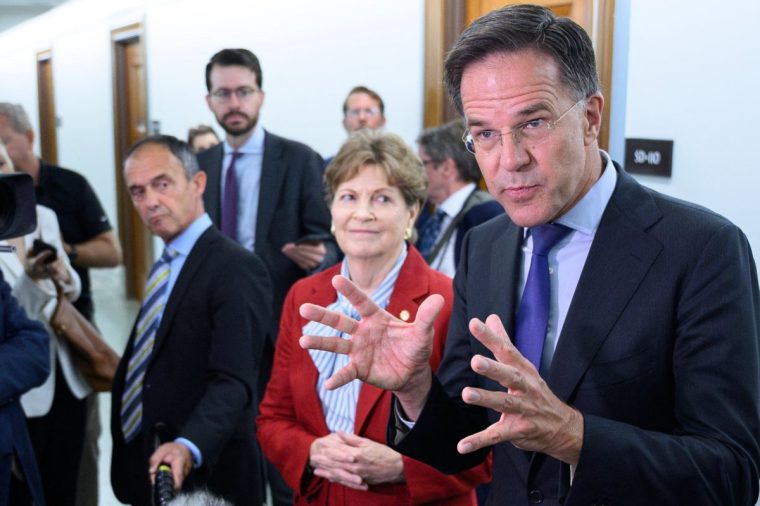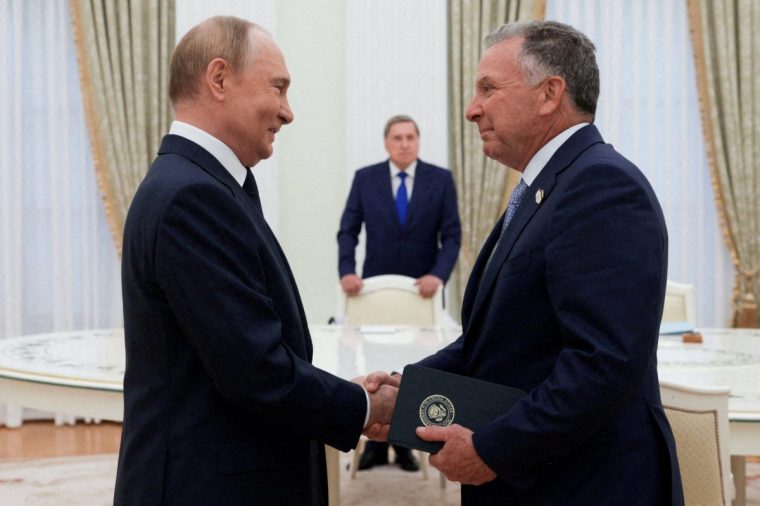The Russian President may well be approaching this week’s meeting with far broader plans than Donald Trump once again endorsing his current war aims in Ukraine
There are few people outside the Kremlin and the White House who expect that anything good will come of Presidents Donald Trump and Vladimir Putin meeting in Alaska at the end of this week. The only differences between predictions of what will be decided at the summit are how bad the outcome will be for Ukraine, for Europe, and for the United States itself.
The ostensible reason for the two to meet is to discuss an end to Russia’s war on Ukraine. After Trump’s change in tone on the war following his most recent direct meeting with the Ukrainian President, Volodymyr Zelensky, Putin needs face time with Trump to bring him around to backing Moscow again.
But Putin may well be approaching this meeting with far broader plans than Trump once again endorsing his current war aims.
Russia’s ambitions go much further than Ukraine. In December 2021, their extent was laid out in the so-called draft treaties presented to Nato and the United States, containing a wishlist that amounted to surrendering Europe to Russia.
The Nato Secretary General, Mark Rutte, appears already to be anticipating demands on Nato coming from this week’s summit.

While the purpose of Nato for Europe was once summarised as keeping the Americans in, the Russians out, and the Germans down, the “treaties” and long-standing Russian proposals for a “new European security architecture” amount to getting the Russians in, the Americans out, and the Germans irrelevant.
When it comes to what Putin might demand, and what Trump might be willing to give him, little has changed despite the death, destruction, and misery of the last three years. That means that despite all the fears of what the meeting means for the war, it could be even more potentially catastrophic if Trump offers Putin more than Ukraine.
The summit represents just the most recent in a long string of false promises by Trump to take steps to compel Russia to end its war. There was no surprise at all that Trump’s most recent “deadline” for Russian action passed with none of the threatened sanctions being imposed on Moscow.
Often called unpredictable, Trump has been utterly reliable when it comes to his reluctance to do anything to offend Putin – so much so that I was able to describe Europe’s current dire predicament in a book published even before Trump returned to office.

Even so, the White House’s determination to reward Russia for its aggression still causes dismay. Just a few days ago, there was still optimism that sanctions might be imposed on Moscow; now, the talk is once again only of what the US might try to force Ukraine to give to Russia.
The fact of the summit – traditionally an endorsement by the US of good relations with Moscow – is already a victory for Putin. Its location reinforces the message that the US will pander to, rather than seek to confront, Russia. Putin is being invited onto US soil and treated as an equal by Trump, in a dramatic Trump-facilitated workaround for the travel restrictions Putin faces as an internationally wanted war criminal.
Russian state media have once again reacted with glee to a Trump initiative and started restating Alaska’s Russian history in much the same terms as it lays claim to other parts of the former Russian Empire, including Ukraine. Trump probably won’t give away Alaska, but if the consistent practice of his current administration is any guide, he might well seek to exploit interest in it for his own personal gain.
And Russia’s already stated interest in discussing Arctic co-operation with the US at the summit may present opportunities to undermine the security of northern Nato members like Norway and Canada.

Even if the impact of the summit were limited to Ukraine, it would spell bad news for the security of the rest of Europe. There’s a reason why, for the first three years of the conflict, an unconditional ceasefire was viewed as one of the worst-case outcomes from the war, freezing the conflict with Russia in control of the occupied territories, and ending the fighting without tackling its underlying cause – Russia’s ambition to eliminate Ukraine as we know it.
As well as cementing Russian gains, a ceasefire would give Russia’s land forces a breathing space to reconstitute faster without Ukraine destroying them almost as fast as they can be rebuilt, and so to be ready faster for Russia’s next push, whether against Ukraine or elsewhere in Europe.
Nevertheless, this “worst-case outcome” is now the only one in play, thanks to the determined efforts of the new US administration.
There are credible reports that Trump’s inexperienced envoy, Stephen Witkoff, entirely misunderstood what Putin was demanding and misreported it to the United States and the world. For Russia, ceasefires are not an end to a war, but a step in the process towards achieving Russia’s war aims.
And there’s no doubt Russia will demand more than it already has, and that it will only be encouraged by the endorsement of its aggression by US ambassador to Nato Matthew Whitaker, talking about territory that has been “earned on the battlefield”. Other aggressors around the world will also be heartened by this further evidence of the United States giving its approval to staking a territorial claim by invading your neighbour.
Meanwhile, Ukraine and Europe risk being once again frozen out of the conversation about their future. In the case of Europe, that’s a damning indictment of the strategic inertia and passivity the continent’s major players have shown since the last time this identical situation arose in February. There were options for ensuring it would not do so again; none of them was taken.
Nevertheless, any agreement about Ukraine without Ukraine is irrelevant – or at the least, entirely dependent on how much pressure Trump can exert on Kyiv.
Ukrainians are still not willing to abandon the occupied territories and the people surviving in them to Russia.
With time, and slowly increasing support from European partners and the much faster development of its own defence industries, Ukrainian dependence on the United States is slowly lessening – including since the most recent efforts by the US to strongarm Kyiv into accepting Russia’s demands by means of cutting off support.
So the outcome of this summit may once again present Kyiv with the choice of whether it can or must disregard US demands and fight on for survival regardless.
Keir Giles is a writer and commentator on Russian affairs. He is a former senior consulting fellow with the Russia and Eurasia Programme at Chatham House in London and author of Russia’s War on Everybody and Who Will Defend Europe?
